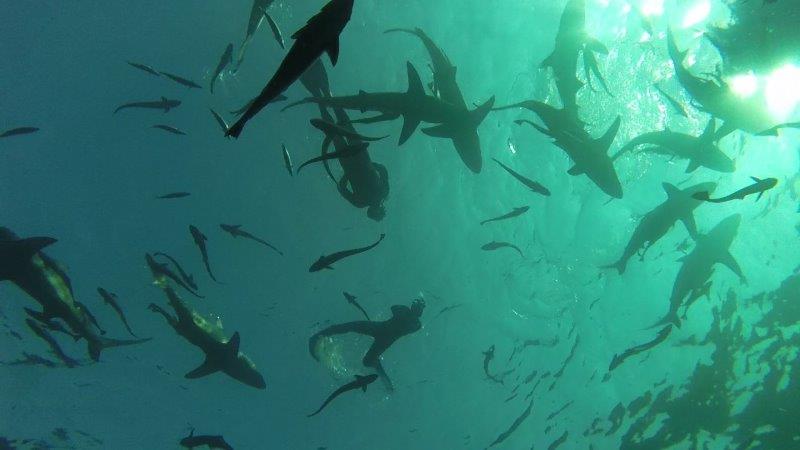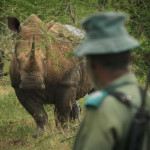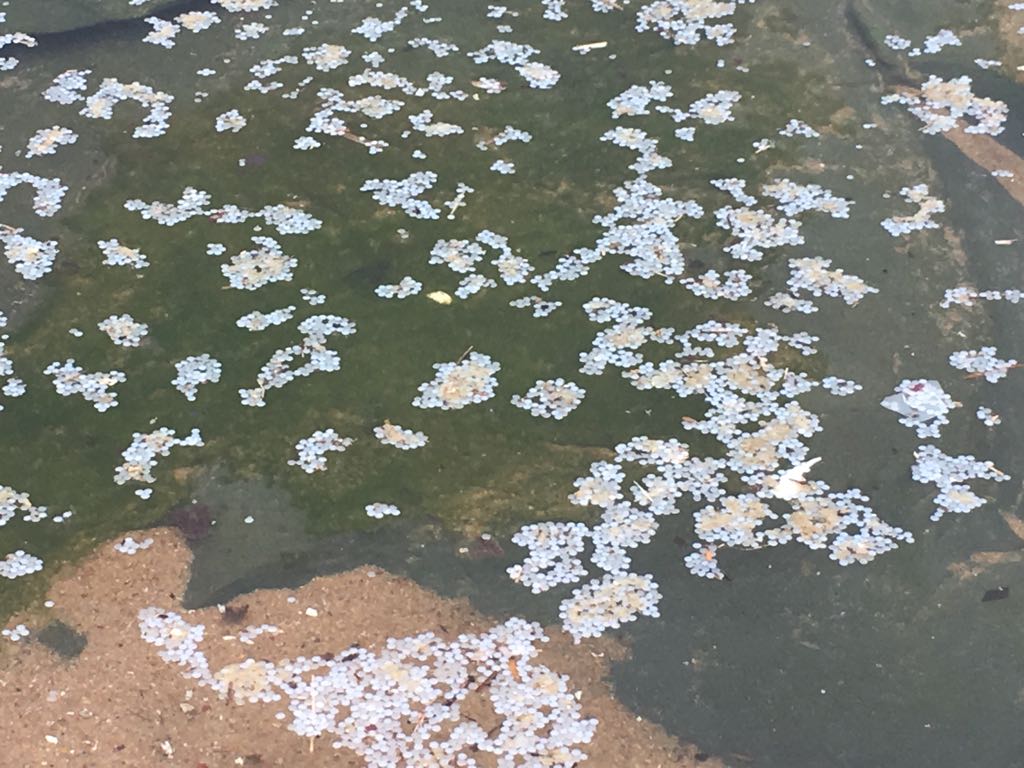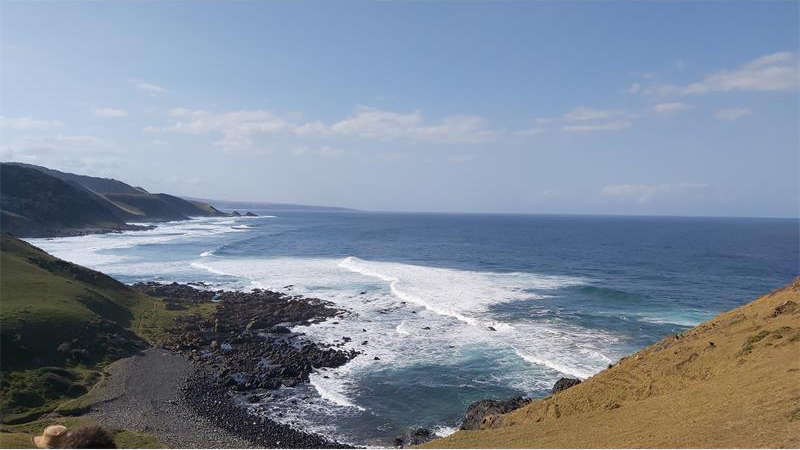Amid the global Covid-19 pandemic and a looming climate crisis climax, the increasingly redundant fossil fuel industry seems hellbent on business as usual, writes Francois du Toit.
Sardine season in KwaZulu Natal represents the very essence of the bounty our seas can provide. If we look after it. Much of what happens off our shores, for so many of us, remains a mystery, something we spend little time on. Out of sight and out of mind.
But our oceans are being abused. The so-called Blue Economy, punted as our salvation, is being raped by foreign vessels and foreign fossil fuel companies under our very noses, under the auspices of Operation Phakisa.
Disregard
It is almost as if we are not amid a global pandemic and a looming climate crisis climax. Humans, with their consumptive patterns and disregard for the fragility of our finite planet, like to believe they have nothing to do with this imbalance, as if it is entirely someone else’s fault. Whose fault is not clear, but the governments of the world, including South Africa’s, and the increasingly redundant fossil fuel industry are hellbent on business as usual.
Total and its environmental consultants, SLR, have put out a proposal to drill 11 more gas and oil exploration wells between Cape St Francis and Mossel Bay following a gas condensate find last year. This is where the warm Benguela and cold Agulhas currents meet, an ecotone. The area is fundamental to the marine biodiversity of our coastline with a marine protected area just south of the prospecting block.
This is the same crowd that has been driving oil and gas exploration across millions of hectares of farmland in KwaZulu-Natal, Free State, Eastern Cape, Mpumalanga, Gauteng and Limpopo.
There is hardly a province where SLR and its partners have not been active, attempting to pave the way for fossil fuel exploitation that the country and its neighbours can ill afford.
The World Wildlife Fund produced a fascinating Facts and Futures report on the state of South Africa’s water in 2016. We learn from it that more than 44% of South Africa’s rivers are critically threatened by our actions and require human-centred solutions at a local scale.

In South Africa we have a penchant for committees and commissions but are slow in putting plans and policies into action that treat water as a key national asset?
Water security
Projects aimed at improving South Africa’s water resources and other environmental goods and services through conservation, protection, restoration, rehabilitation are not getting the support they deserve.
The 19th Strategic Integrated Project, known as ‘SIP 19: Ecological Infrastructure for Water Security’ is a case in point. Its purpose is to make a significant contribution to ensuring a sustainable supply of fresh, healthy water to equitably meet South Africa’s social, economic and environmental water needs for current and future generations
Instead of safeguarding one of South Africa’s most critical water assets – the Uthukela, Umzimvubu and Umgeni water catchments – a strategic environmental assessment was conducted for the Karoo Basin gas exploration.
Ban Ki-Moon, the former UN Secretary General, once remarked, “We are the first generation that can end poverty – and the last generation to tackle climate change before it is too late.”
We spend millions on water treatment but ignore the plight of wetlands and water catchments, when nearly 80% of people in some of these catchments are unemployed and do not have access to clean water.
At Cape Town’s Voëlvlei supply dam, for instance, the purification plant was costing R4.7 million a year in chemicals, needed to treat algal blooms, in 2006/7. An investment in job creation in the wetlands of this catchment could have substantially reduced this cost or prevented it altogether. That is 100 full-time jobs at salaries of R4,000, injecting R400,000 a month into a local economy and generating multipliers. These would stimulate other opportunities, including improving awareness of ecosystems.
Rights
We are so fixated on creating jobs through government procurement that we ignore our own basic needs, and imperil our water sources? We have to fight our own government for the right to protect and preserve our own resources. The Xolobeni community in the Eastern Cape had to take the Minister of Mineral Resources to court to preserve their traditional rights to the land.
And it is not that different here than in other countries. In the USA, the Dakota Access Pipeline has just been ordered to shut down after indigenous people fought for years for their right to freedom from potential harm – an issue blatantly ignored by the Trump regime. It seems that civil servants are seldom civil or servants to the people.
Closer to home, Yolanda Daniels, a domestic worker on a farm in Stellenbosch for the past 16 years was prevented from making basic improvements to her dwelling – leveling the floors, paving an outside area and installing an indoor water supply, a wash basin, a second window and a ceiling.
Dignity
She received a letter from the farm manager ordering her to stop the work, alleging the improvements were unlawful. In effect, she was denied the right to live in a dwelling that would afford her a modicum of dignity.
The matter was taken to the Constitutional Court which ruled in her favour. The judgement opens with the plaintive words from an old man, Petros Nkosi: “The land, our purpose is the land; that is what we must achieve. The land is our whole lives: we plough it for food; we build our houses from the soil; we live on it; and we are buried in it… in everything we do, we must remember that there is only one aim and one solution and that is the land, the soil, our world.”
Clean air, clean water and clean soil, the protection of terrestrial and marine life and our ability to earn a living off it: Is it too much to ask our elected officials to ensure we can enjoy these rights?
-
Francois du Toit is the CEO of African Conservation Trust – an organisation that envisages a world that is able to sustain human life with abundant natural resources, which people can use not only to survive, but to flourish. This story forms part of Roving Reporters The Future We Want series. Click here to read more. You may republish this article, so long as you credit the author and Roving Reporters, and do not change the text. Please include a link to the original article.
FEATURED IMAGE: Oil rig in Brazil – Wikimedia Commons
How the Sunday Tribune covered the story: Click here to download pdf
Now read: NET ASSET: How we are starting to see sharks in a new light














